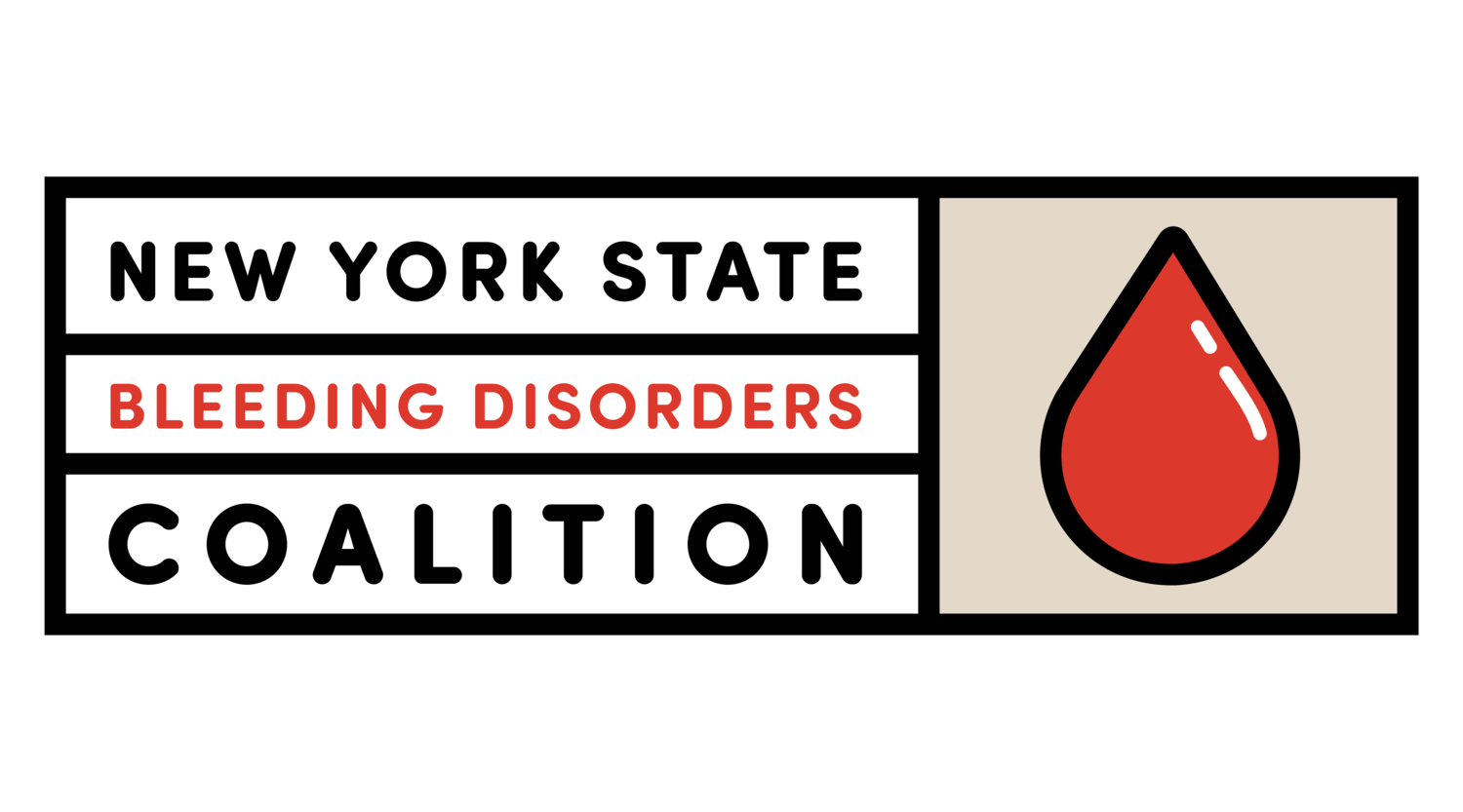Bleeding Disorders
What Is A Bleeding Disorder?
Bleeding disorders are chronic medical conditions in which an affected person’s blood does not properly clot. They are characterized by extended bleeding after injury, surgery, trauma or menstruation. Sometimes the bleeding is spontaneous, without an identifiable cause. Improper clotting can be caused by defects in blood components and/or blood clotting proteins (called clotting factors). The most common bleeding disorders are Hemophilia, Inherited Platelet Disorders, and von Willebrand’s Disease.
Von Willebrand’s Disease, Inherited Platelet Disorders, and Hemophilia are most often inherited, though adults sometimes develop Hemophilia later in life. Bleeding disorders can also occur from such conditions as anemia, cirrhosis of the liver, HIV, leukemia and Vitamin K deficiency. They also can result from taking certain medications which thin the blood, including aspirin, heparin and warfarin.
quick facts
Hemophilia affects 1 in 5,000 male births. It is most prevalent in males, though many females also have Hemophilia.
The most common symptoms of bleeding disorders are heavy periods, bruising, nosebleeds, bleeding into joints and excessive bleeding after cuts, blood work, and vaccines.
The most common bleeding disorder is Von Willebrand’s Disease which affects 1 in 100 people.
March is Bleeding Disorder Awareness Month (U.S. Department of Health and Human Services)
Treatment
Treatment for bleeding disorders varies, depending on the type of bleeding disorder and its severity. Some patients can use a nasal spray (Stimate), or anti-fibrinolytics (which come in liquid and pill form). Other patients must infuse with a blood product (like platelets or cryo-precipitate) or an artificially produced blood clotting protein (also known as clotting factor). Patients who must infuse clotting factor might do so only on-demand, or be put on a regimen of regular preventive infusions to control bleeding.
Concerns
Uncontrolled bleeding can lead to serious complications, such as pain, permanent damage to muscles, joints, and organs; in critical cases it could cause death. Patients with bleeding disorders should avoid medications that impair the blood’s ability to clot (aspirin, ibuprofen, heparin, etc.). They might need to adjust their lifestyle to limit the chance of bleeding (by refraining from certain activities). Having the right health insurance and expert medical care from hematology specialists is a must for people with bleeding disorders to stay healthy!
learn more
center for disease control (CDC) - Blood Disorders
The CDC offers information about bleeding disorders such as hemophilia and von Willebrand Disease, including research and patient stories.
LA Kelley Communications
LA Kelley Communications provides helpful newsletters, books, and other support information to help families learn more about bleeding disorders.
